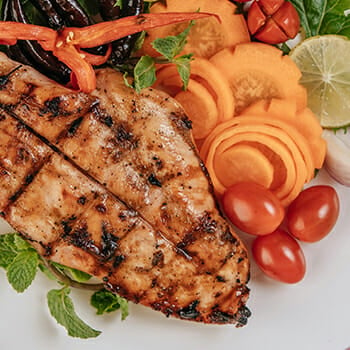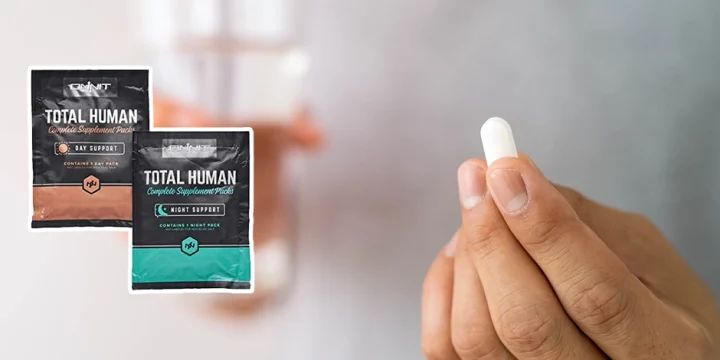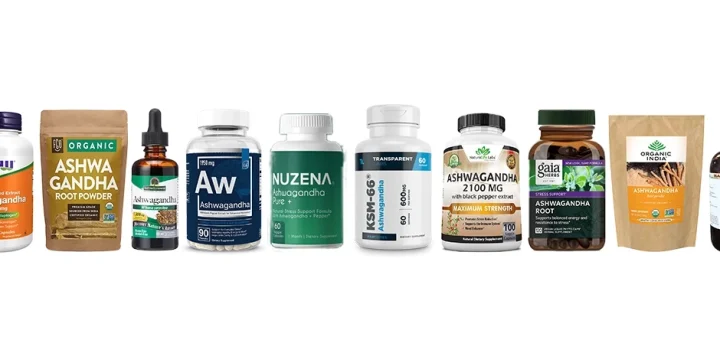Whenever I discuss dietary fat with my clients, I often see surprise when I suggest increasing their fat intake – and I'm not talking about the saturated fats from junk food. In my years as a personal trainer, I've seen firsthand how the right kinds of fats can positively impact one's health and fitness goals.
But foods high in fat have received a bad reputation, even though many of them may contain essential fatty acids and unsaturated fat that your body needs.
So, we teamed up with a dietitian to help you better understand what the different unhealthy and healthy fats are, what is too much fat, and share some tips for improving your diet.
Quick Summary
- To maintain a healthy diet, it's recommended to consume about 20% to 30% of total daily calories from fats, which equates to roughly 45 to 75 grams of fat per day based on a 2000-calorie diet.
- The article categorizes fats into monounsaturated, polyunsaturated, saturated, and trans fats, emphasizing the importance of choosing healthier fat types for optimal health.
- The Cleveland Clinic suggests that 1 gram of fat contains 9 calories, a key factor in calculating daily fat intake.
- Personally, I believe that understanding and managing fat intake is crucial for a balanced diet, and focusing on healthy fats can significantly improve overall well-being.
How Much Fat Does Your Body Need?

In my experience, I've guided many clients through understanding that 20% to 30% of their total daily calories should ideally come from fats. This translates to about 45 to 75 grams of fat per day on a standard 2000 calorie diet, a balance that has helped my clients maintain a healthy lifestyle while enjoying their meals.
According to an article from the Cleveland Clinic website, you work that out by calculating that 1 gram of fat contains 9 calories [1].
But how do you know how much fat you’re consuming?
For that, you should get a diet journaling app like MyFitnessPal or Noom.
You simply enter everything you eat in a day, and it will tell you what your macronutrient breakdown is.
If you’re above your daily target, then aim to limit total fat intake by cutting out unhealthy trans fats first.
More on that shortly.
Why Is Fat Important For The Human Body?

Fat is important for the human body as it provides fatty acids, forms cell walls, offers stable energy, and aids in the absorption of fat-soluble vitamins.
Fat intake has been given a bad name in many media outlets, and you’ll often see reports about health issues from fat alongside pictures of burgers and meat with visible fat.
And while certain types of fat will lead to developing high blood pressure and cardiovascular disease, other types are vital to the human body.
For example, many oils like olive oil bring important health benefits like fatty acids, building blocks for cell walls, stable energy, and a way to absorb fat-soluble vitamins.
So, rather than just blindly switching to low-fat foods, consider the types of fat you’re consuming instead.
"Fats a crucial part of the diet, not just for the heart health reasons of unsaturated fats, but also for energy and healthy cell function."
- Claire Muszalski, Registered Dietitian
Different Types Of Fat

Nutrition labels are notoriously difficult to read, and clever marketing on junk food has obscured things even more.
Here’s what you need to keep in mind.
1. Monounsaturated Fats or Unsaturated Fats
Monounsaturated fat is typically found in an oily form at room temperature, and olives are a great source. A recent study from the PubMed website found that this type of fat may lead to stable blood glucose levels and controlled weight loss [2].
Incorporating healthy fats, particularly MUFAs, can enhance heart health, evidenced by a reduction in triglycerides by -0.31 mmol/L and an increase in HDL cholesterol by 0.06 mmol/L when compared to high-carbohydrate diets.
2. Polyunsaturated Fats
Polyunsaturated fats are another important healthy source of fat, and they are mainly the Omega-3s and Omega-6s. They are most common in fish, but most people tend to take in more Omega-6s than Omega-3s, which you should try and get a better balance of.
3. Saturated Fats
You will need some saturated fat for cooking as these fats are more stable at high temperatures. But you have to be careful and limit saturated fats as many studies have shown that they may raise cholesterol levels (especially LDL cholesterol) [3].
4. Trans Fats
Now we get to the really bad types called trans fat. The majority of trans fats in foods are artificially made by adding hydrogen to unsaturated fat to create a cheap product with similar properties to saturated fat.
It can cause many serious issues like insulin resistance, gut inflammation, and restricted heart and blood vessels.
Read More: 14 Healthy (Unsaturated) Sources Of Fat
Healthy Low Fat Foods

So, the first thing you should know is that you need to limit saturated and trans fat intake. That means reducing fried or sautéed foods and all that highly processed crap you see on supermarket shelves.
But there are a few other simple changes you can make to move away from unhealthy fat and towards healthy types.
Dairy Products
- Reduced-fat sour cream
- Enjoy low-fat cheeses
- Low-fat yogurt
- Nonfat frozen yogurt
Oils
- Coconut oil
- Olive oil
Plant Foods
- Avocados
- Unsalted peanuts
- Hemp seeds
- Flaxseed
And, if you like eating meat, choose lean meats and avoid frying them with hardened fat.
“Protein sources, especially red meat and dairy products, contain saturated fat. Good, low-fat sources of protein include lean meat, fish, poultry without skin, beans, lentils, tofu, fat-free or low-fat yogurt, milk, and cottage cheese.”
- ClevelandClinic.org
How to Eat Fat to Lose Fat?
To eat fat to lose fat, follow the ketogenic diet, which is recommended for its high success rate.
Efficient weight loss on this diet entails a focus on mono and polyunsaturated fats, with moderate intake of saturated fats.
Dr. Charlie Seltzer, an obesity specialist, notes that achieving a ketogenic state requires low carb and moderate protein intake, with the remaining calories derived from fat.
The initial water weight loss is followed by a shift to burning stored fat, making the keto diet a long-term solution.
To enhance fat burning, consider natural fat burners, designed to accelerate fat loss, boost metabolism, and increase energy levels.
Can You Eat Too Much Healthy Fat?

Yes, you can eat too many healthy fats, which can go against you when you want to lose weight.
While trans fat and some saturated fats are the main ones that cause health issues, if your total calorie intake is too high, then reducing the total fat in your diet isn’t a bad idea.
However, you need to carefully balance this and avoid only choosing fat-free products as they often contain lots of sugar to make up for the lack of flavor.
Stick with the mono and polyunsaturated fat and aim for it to be about 25% of your daily calories, and you should be in a good position.
FAQs
Are 100 Grams of Fat a Day Too Much?
Yes, 100 grams of fat is probably too much for most people. It would deliver about 900 calories which is almost half the daily total calories for an average adult.
Do Good Fats Make You Fat?
Yes, even good fats can make you fat and make you struggle to lose weight. But the solution is not to switch to reduced-fat or fat-free products but to reduce your overall calories.
How Many Calories Do Fats Contain?
Every gram of fat contains around nine calories. This applies to both healthy and unhealthy fats.
Which High-Fat Diet Works Best?
The high-fat diet that works best is the ketogenic diet. While there are many high-fat and low-carb diets to choose from, we highly recommend the keto diet because it has the highest success rate among our clients.
Is Guava Good for Weight Loss?
Yes, guava is good for weight loss; it contains only 68 calories per serving (100 grams) and is packed with fiber which can induce the feeling of fullness and keep you away from any unhealthy snacking.
How Do Healthy Fats Contribute to Brain Development and Cognitive Function?
Healthy fats, particularly omega-3 fatty acids, play a crucial role in brain development and cognitive function, supporting memory, learning, and overall brain health. They are especially important during childhood for brain development and in older adults for maintaining cognitive function.
What Is the Role of Healthy Fats in Traditional Diets Around the World?
Traditional diets around the world, like the Mediterranean diet, often incorporate healthy fats such as olive oil, which contribute to overall health and longevity. These diets showcase how healthy fats can be used in a balanced way to support heart health and prevent chronic diseases.
How Can Healthy Fats Benefit Skin and Hair Health?
Consuming healthy fats can significantly improve skin and hair health by providing essential fatty acids that contribute to skin hydration and hair strength. These fats, found in foods like avocados and nuts, help maintain the skin's natural oil barrier and promote shiny, strong hair.
What Are the Differences Between Plant-Based Fats and Animal-Based Fats?
Plant-based fats, like those in avocados and nuts, are typically unsaturated and beneficial for heart health. In contrast, animal-based fats, such as butter and lard, are often saturated and can contribute to higher cholesterol levels. Understanding these differences is key to making healthier dietary choices regarding fat consumption.
How Do Healthy Fats Enhance Athletic Performance?
Healthy fats are a vital energy source during endurance sports, providing long-lasting energy and aiding in the absorption of essential vitamins. Athletes can benefit from incorporating healthy fats into their diet to improve energy levels and overall performance.
References:
- https://health.clevelandclinic.org/how-many-calories-a-day-should-i-eat/
- https://pubmed.ncbi.nlm.nih.gov/27457635/
- https://www.ncbi.nlm.nih.gov/pmc/articles/PMC6024687/
About The Author
You May Also Like






